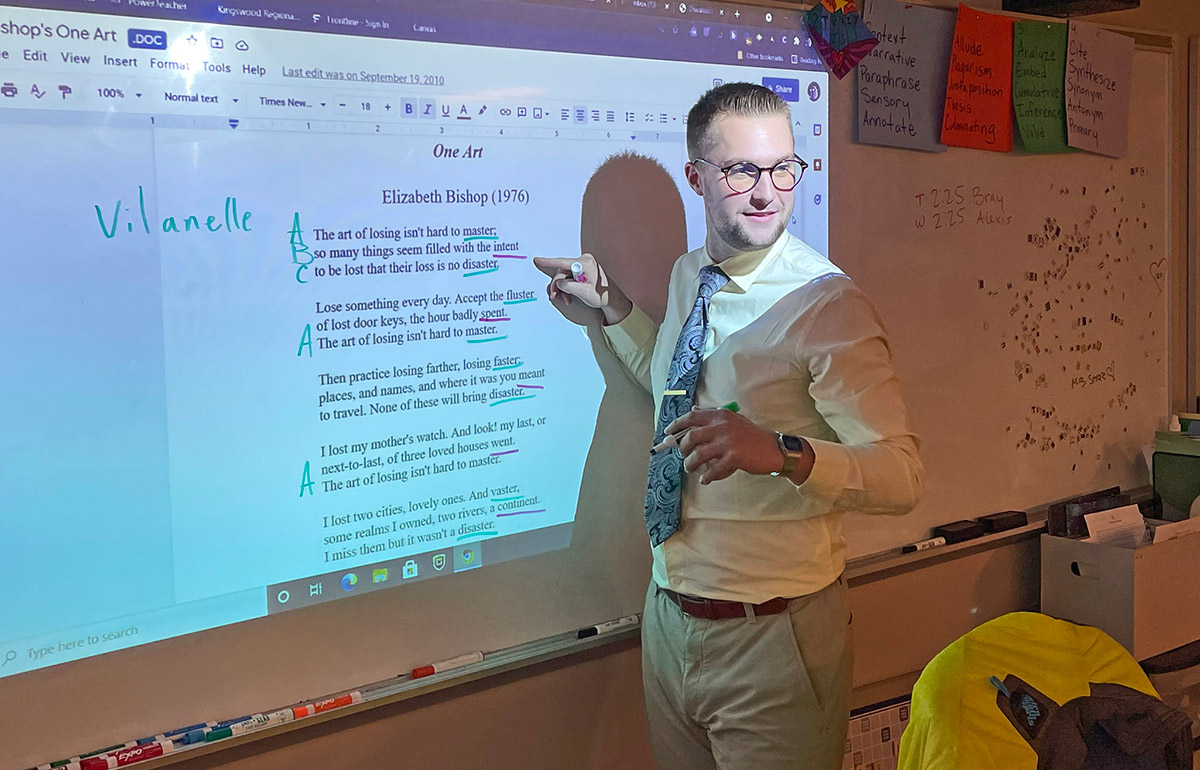
 Creativity and Curiosity Provide Food for Thought
Creativity and Curiosity Provide Food for ThoughtGoode specializes in early and nineteenth-century American literature, sustainability studies, transnational American studies, and women’s, gender, and sexuality studies. She had previous experience in teaching literature-based courses on food and environmentalism, but what makes the INCAPS unique is their foundation in Cluster Learning.
“American Food Issues isn’t a literature course, but rather a space for disciplinary integration and collaboration,” says Goode. “It focuses on students’ own solutions to food crises and issues in their community. For instance, when a group of students became focused on food insecurity among college students, their work and research revolved around that topic. I do not pre-determine all of the content ahead of time; their creativity and intellectual curiosity drives the course.”
Food insecurity plagues a significant percentage of Americans nationwide, and college students strapped for funds can be particularly vulnerable. Among the goals of Cluster Learning is to inspire enduring change beyond the confines of the classroom, and one of Goode’s course groups began the process that developed the Hartman Union Building’s Community Cupboard. The grab-and-go stop stocks snacks, quick meals, and even school supplies, and students are encouraged to “take what you need, leave what you can” while building a community focused on helping others.
“We brought our project to the already established Student Support Foundation (SSF), who gladly partnered with us,” says Jenna MacKinnon ’20. “We took seats on the board of the organization the following school year and saw our project come to life. It is still running today. I love seeing the updates on Instagram and Facebook from the current SSF members who continue to make it happen. It was the most rewarding experience I had as a Plymouth State student. I love that a class I took resulted in a lasting impact on campus.”
“In order to prepare our students for a fluctuating world, we must provide them with opportunities to collaborate across different fields, work in teams to address unsolved, complex problems, and treat them as contributors, rather than just consumers of knowledge,” says Goode. “This kind of pedagogy, which characterizes Cluster Learning at PSU, is urgently needed.”
“American Food Issues is the course that I reflect on the most, every day I teach,” says Griffin Nyhan ’20, English project coordinator at Kingswood Regional High School in Wolfeboro, NH. “I would guess that roughly 90 percent of every task I complete on any given day as an educator starts with a question that I must generate and refine to solve a specific problem or improve on something. Having had that experience in the American Food Issues course makes this process feel familiar and leads me to more success with less stress.”